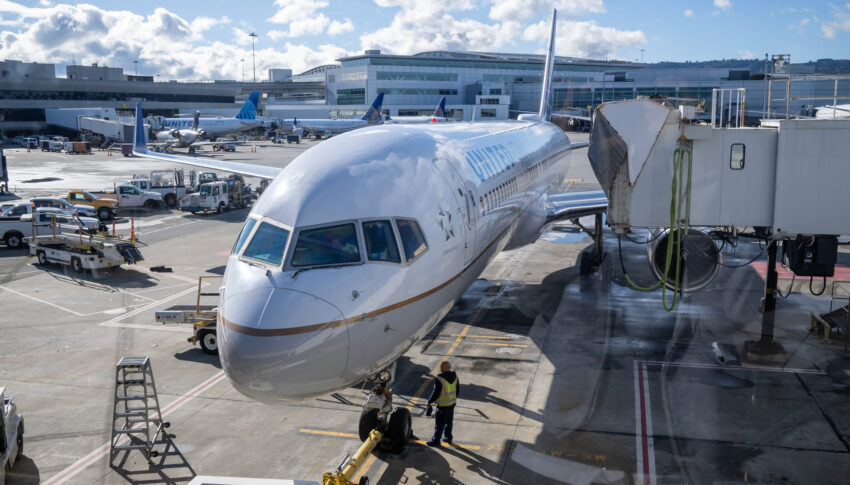The aerospace industry is braced for a transformative 2024 with predictions of increasing sustainability pressures combined with robust airline industry operating profits.
Experts and industry insiders are forecasting a year of significant progress and change in the field of aviation.
With numerous ambitious projects underway, the year holds the promise of reshaping how we navigate the skies.
Here, FINN explores predictions for 2024 in more detail.
Airlines to achieve record revenues in 2024
The International Air Transport Association (IATA) has announced strengthened profitability projections for airlines over the coming 12 months.
Airline industry net profits are expected to reach $25.7 billion in 2024 (2.7% net profit margin). That will be a slight improvement over 2023 which is expected to show a $23.3 billion net profit (2.6% net profit margin).
Airline industry operating profits are expected to reach $49.3 billion in 2024 from $40.7 billion in 2023.
Total revenues in 2024 are expected to grow 7.6% year over year to a record $964 billion.
IATA said some 4.7 billion people are expected to travel in 2024, an historic high that exceeds the pre-pandemic level of 4.5 billion recorded in 2019.
Cargo volumes are expected to be 58 and 61 million tonnes in 2023 and 2024, respectively.
Supply chain challenges
John Grant, partner at MIDAS Aviation, says disruptions from the previous year and global issues may impact the aviation industry.
Writing for OAG, the global travel data provider, Grant said: “The Pratt & Whitney engine problem is expected to peak, potentially grounding up to 300 aircrafts globally at any given time.
“Carriers like Lufthansa, Indigo, Delta Air Lines, Wizzair, and Virgin Atlantic may experience disruptions from these delays. Some airlines, however, might find opportunities with these engine delays. With reduced capacity, they have an opportunity to exert higher fares.
“Boeing’s recent backlog issues add another disruption for airlines that simply don’t know when their new aircraft will be arriving next year, making planning a bit difficult for some.”
Fare compression and costs will squeeze the market
Dr Stuart Hatcher, chief economist at IBA, forecasts that air travel demand will grow, but fare compression and costs will squeeze the market
He said: “Providing we don’t see further aggression from the central banks, small rate cuts of approximately 25 basis points will start to emerge mid-year. Inflation, at least in the US, will continue to subside and while it will fall short of the target, the mounting pressure, both economically and politically, will take its toll. The GDP outlook remains largely flat albeit at a slightly lower level to 2023, remaining close to 3% on a global level.
“This prediction is dependent upon the increasingly dovish environment of the Chinese market, but it would be a welcome sight to see some of the tension ease, not to mention a welcome sight towards air cargo growth too. Assuming that China’s economy and oil volatility settle, and in turn, that Pacific traffic levels improve from absolute zero, jet fuel demand will become more predictable and marginally tighter.
“The dislocated nature of the central banks will maintain a difference between relative inflation. We therefore see a strong dollar persisting throughout 2024, which won’t help non-US operators balance their budgets. While demand is expected to grow, fare compression and costs will squeeze the market whereby the industry can expect defaults to rise above the current low levels.
“Trading will improve to the extent that even asset-backed securities will be back on the agenda. Finally, OEM performance will align with the GTF engine fallout in early 2024 which, at this point, continues to remain an unknown to the industry. Deliveries will continue to improve but remain south of OEM predictions. IBA believe the in addition to Boeing’s quality issues. At this point, we don’t see 2018 delivery levels being surpassed until mid-way through 2025.”
Sustainability pressures
The European airline industry will continue to be in the spotlight on climate change, according to Grégory Laville de la Plaigne, a partner at Clyde and Co.
“As we head into 2024, European airlines are very much in the front line of both regulatory and public opinion when it comes to addressing the challenges of climate change,” he said.
“This comes as part of wider moves in Europe to enact more precise compliance with net zero targets. While the aviation industry has made plenty of progress on and remains fully committed towards those goals it is in the spotlight.
“We expect to see more countries following the recent examples of France and Spain next year by looking at restricting short haul flights when there is an alternative to travel by train as well as other airport hubs to look at the example of Schiphol where the Dutch government is trying to reduce the airport’s capacity. Both developments have significant implications for the industry.”
Author: FINN
Published 15th January 2024
First published on www.wearefinn.com 3rd January 2024




